Physiology of a Restful Sleep
The suprachiasmatic nucleus (SCN) in the brain's hypothalamus acts as the master pacemaker, receiving input from light-sensitive cells in the retina and coordinating the release of melatonin, the sleep hormone, from the pineal gland. Melatonin levels rise in the evening, signaling the body that it's time to prepare for sleep.
The sleep process is further influenced by neurotransmitters, such as serotonin and gamma-aminobutyric acid (GABA), which help regulate sleep initiation and maintenance. Serotonin, a precursor to melatonin, promotes relaxation and a sense of calmness, while GABA acts as an inhibitory neurotransmitter, reducing brain activity and promoting sleepiness.
During sleep, different stages are orchestrated by the cyclic pattern of non-rapid eye movement (NREM) and rapid eye movement (REM) sleep. NREM sleep consists of three stages, each serving unique restorative functions.
Slow-wave sleep (NREM Stage 3) is particularly important for physical repair and growth, while REM sleep is associated with vivid dreaming and plays a vital role in cognitive processes and emotional regulation.
The hypothalamic-pituitary-adrenal (HPA) axis, a complex hormonal system, also impacts sleep. Cortisol, often referred to as the stress hormone, follows a diurnal rhythm, with higher levels in the morning to help us wake up and lower levels in the evening to facilitate sleep onset.
Chronic stress can disrupt this delicate balance, leading to sleep disturbances.
Supplements for improving sleep
Various lifestyle factors, such as diet, physical activity, and exposure to electronic devices, can influence sleep quality. Nutritional compounds like tryptophan, found in protein-rich foods, contribute to serotonin production and may support healthy sleep.
In summary, the physiology of healthy sleep involves intricate interactions between circadian rhythms, neurotransmitters, hormones, and lifestyle factors. Understanding these mechanisms empowers us to implement effective strategies and utilize sleep-supporting supplements to promote restorative and rejuvenating sleep patterns
Melatonin
Melatonin is a hormone secreted by the pineal gland that plays a pivotal role in regulating the sleep-wake cycle, known as the circadian rhythm. Its synthesis is influenced by darkness and suppressed by light exposure.
As a supplement, melatonin exerts its effects by interacting with melatonin receptors in the brain, particularly MT1 and MT2 receptors. This interaction helps to reduce neural activity and promote drowsiness, leading to faster sleep onset and improved sleep quality.
L-Theanine
L-Theanine, commonly found in tea leaves, is an amino acid known for its ability to cross the blood-brain barrier and modulate neurotransmitters. It stimulates the production of gamma-aminobutyric acid (GABA), a neurotransmitter that promotes relaxation and reduces anxiety.
By increasing GABA levels, L-Theanine induces a calming effect on the central nervous system, ultimately improving sleep quality.
Magnesium
Magnesium is an essential mineral that plays a critical role in various biochemical reactions in the body, including the regulation of neurotransmitters and muscle contractions.
Its relaxing properties can be attributed to its ability to antagonize calcium, an essential mineral for muscle contraction. By inhibiting calcium's effects, magnesium promotes muscle relaxation, which can lead to better sleep and reduced nighttime awakenings.
Glycine
Glycine is an inhibitory neurotransmitter in the central nervous system, primarily found in the spinal cord and brainstem. As a sleep aid, glycine reduces core body temperature, lowers adrenaline levels, and enhances NREM (non-rapid eye movement) sleep.
By modulating neurotransmitter activity, glycine contributes to improved sleep quality and may reduce sleep disturbances.
5-HTP
5-HTP, or 5-Hydroxytryptophan, is a precursor to serotonin, a neurotransmitter that regulates mood and sleep. Upon ingestion, 5-HTP is converted to serotonin in the brain, promoting relaxation and a sense of well-being.
Increased serotonin levels can lead to better sleep quality and a reduction in sleep disorders.
Valerian Root
Valerian's sleep-enhancing properties are attributed to its interaction with GABA receptors in the brain.
Valerenic acid, a compound found in valerian root, inhibits the breakdown of GABA, leading to increased GABA levels and a calming effect on the central nervous system. This results in improved sleep latency and overall sleep quality.
Hops
The sedative effects of hops are primarily attributed to its alpha acid content. Alpha acids have been shown to bind to GABA receptors, leading to increased GABAergic activity and enhanced relaxation. This can aid in reducing anxiety and promoting restful sleep.
Passionflower
Passionflower contains several compounds, including flavonoids and alkaloids, which have been found to exhibit anxiolytic and sedative properties. These compounds bind to benzodiazepine receptors, potentiating the effects of GABA and inducing relaxation and improved sleep quality.
Conclusion about Nutritional Approaches to Improve Sleep
Prioritizing quality sleep is crucial for overall health and well-being. While a combination of lifestyle changes and good sleep hygiene practices play a significant role in promoting restful slumber, supplements can also offer valuable support.
The supplements mentioned in this article have demonstrated potential benefits in enhancing sleep quality and promoting relaxation. Melatonin, L-theanine, magnesium, glycine, 5-HTP, valerian, hops, and passionflower are among the beneficial compounds that can help improve sleep patterns.
It is important to remember that individual responses to supplements may vary, and consulting with a healthcare professional before adding any new supplement to your routine is advised, especially if you are taking medications or have underlying health conditions.
Additionally, adopting a well-balanced diet, maintaining a regular sleep schedule, and managing stress are essential components of a comprehensive approach to improving sleep quality.
In conclusion, incorporating these supplements along with healthy lifestyle habits can contribute to better sleep and overall wellness. Sweet dreams!

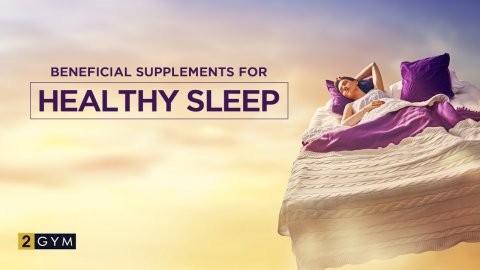









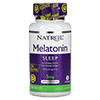
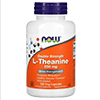

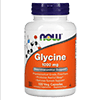
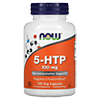
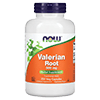
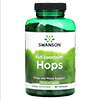
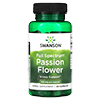





Log in with ( Sign Up ? )
or post as a guest
Be the first to comment.